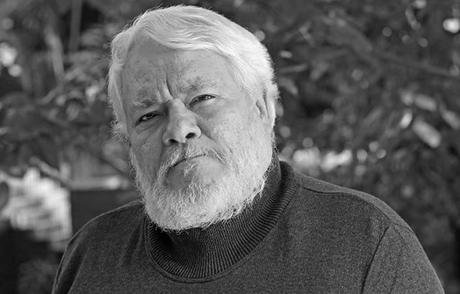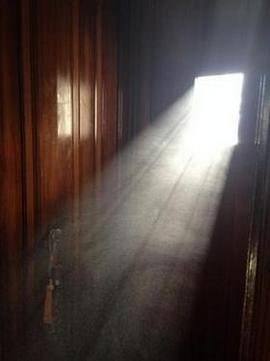ADSactly Literature: Inexpressible Vigil of Armando Rojas Guardia (Part I)

Friends readers of @ADSactly, I give you a third essay about the literary work of contemporary Venezuelan writer Armando Rojas Guardia (If you are interested in reading the two previous ones, you can go to 1.com/poetry/@adsactly/adsactly-world-i-who-knew-of-the-old-wound-by-armando-rojas-milestone-in-contemporary-venezuelan-poetry) and 2. In this text I concentrate my interpretation on his most problematic book: The nothingness watchful. I thank you for your time and attention.

(...) a voice that nods out of nowhere,
from its hollow, its ignorance; from the
the only intimacy he has left (...)
María Fernanda Palacios
You offer them full hands you nothing
Rafael Cadenas
How to interpret the voice of the deep complaint, of the aridity involved, of the "sacred amazement" that the word contains? How to speak of the intensity of a "deserted lucidity"?
if there is nothing to express or describe
except for the same nothing vigilant.
The word becomes uncertainty, alterity of being and its language; word that looks at itself and finds itself in its reverse, in the unspoken, the evicted; word that finds itself in its intimate abandonment, waiting for an advent that is impossibility, rupture, wound of the unspeakable.
From that corporal and spiritual substance Armando Rojas Guardia shakes us in The nothingness watchful (1994). Substance expressed as the voice of poetry itself, which is experienced in the dilemma of 'querer-decir' -the desire- and 'no-power-decir' -the annulment.

At the heart of this uneasy book by Armando Rojas Guardia is an abysmal reflection on the possibility and pertinence of poetic saying. A concern that we notice with a particular presence and character in his previous books, for example, in the poems "Microjazz" and "Poetry?" by I who knew about the old wound (1985), or in the poems "Black background" and "Persecution of Poetry" by Towards the living night (1989). In the first two, the wound of poetry is awareness of the precariousness of the word in the face of reality and experience. "The poem is today / the empty lucidity of this space / that leaves pain uncovered" we read in "Microjazz", and in "Poetry?": "It would be necessary / to condemn". A glimpse of the nothingness we find in The nothingness watchful is revealed to us in Towards the living night; in "Persecution of Poetry" the void will be a profound experience of the words that want poetry: "(...) barely the void of forms / where they are unleashed, free now / to be resolved in nothing neat / -a very sweet, compact nothingness-".
The experience of emptiness and nothingness becomes radicalised, takes on a slightly different dimension in The nothingness watchful. A sense sought for being absent is offered to us in the assent of the voice of his first poem. Poetry has to be poured into an awaited language which copulates and "very slow, fertile" pleasure. To say that it is a loving and tasty celebration, uttered but preserved in its crackling. A saying that, "letter by letter", rises "like an erect, resonant frontier", that feels body inhabited by the word and lived word of the body. A saying made of essential reality, of "the sweet bonfire" that "the raw logs of language" vivify.

But in The nothingness watchful that face of poetic saying seems to blur, to be his other annihilated:
I love the sun of the word day.
But I say it here and it evaporates
the morning power of the word,
your auroral saliva, freshly tasted.
The desire lies there, next to the lamp,
awake under the dust of the stars,
casting his shadow on the paper
who expels him silently, undeservedly.
The reality requested and experienced in and by the word becomes hollow, white that rots waiting for the poem. Reality is the disturbing and ungraspable report, which is sought in its tremor of non-verbalised truth: embedded like a shipwreck "under the closed sky of silence", it becomes expectant and fugitive matter.
(Continued in next post)
References
Rojas Guardia, A. (1985). I knew about the old wound. Venezuela: Monte Ávila Editores.
Rojas Guardia, A. (1989). Towards the living night. Venezuela: Fabriart.
Rojas Guardia, A. (1994). The nothingness watchful. Venezuela: Edit. Little Venice.
Written by @josemalavem
Click the coin below to join our Discord Server
)
This is worth reading
Posted using Partiko Android
Thank you!
Nice dear. Great post. Keep it up. It was great to read. Thanks for sharing.
Posted using Partiko Android
Thank you!
Hi, @adsactly!
You just got a 0.34% upvote from SteemPlus!
To get higher upvotes, earn more SteemPlus Points (SPP). On your Steemit wallet, check your SPP balance and click on "How to earn SPP?" to find out all the ways to earn.
If you're not using SteemPlus yet, please check our last posts in here to see the many ways in which SteemPlus can improve your Steem experience on Steemit and Busy.
One of Armando Rojas Guardia's books that taught me about poetry is precisely this one, La nada vigilante. This text is poetic. Writing can be difficult, and writing poetry can be more so. The writer may feel that words do not capture all the feeling, the truth, of what he wants to express. Many obstacles can hinder the writing, but the poet will always be there waiting, like a lover to his beloved, willing and fervent delivery. Excellent work, @josemalavem.
That's right, @nancybriti; it's a book that is not only a poignant poetry, but also, impels reflection on the poetic fact itself. Thank you for your comment.
Hello @adsactly, thank you for sharing this creative work! We just stopped by to say that you've been upvoted by the @creativecrypto magazine. The Creative Crypto is all about art on the blockchain and learning from creatives like you. Looking forward to crossing paths again soon. Steem on!